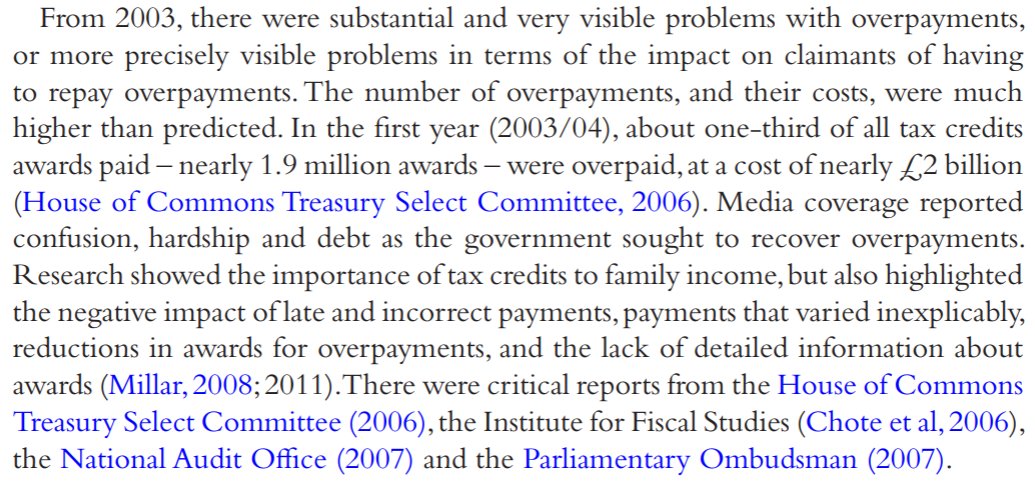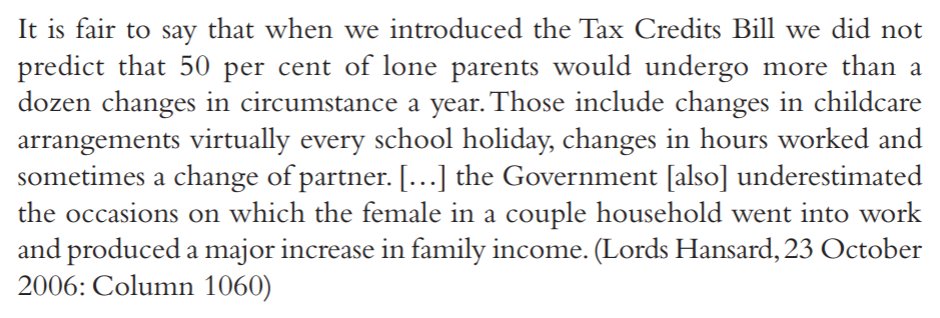
My take on the back and forth about the advanced child tax credits is that, as it was proposed in the AFA, where payments are only sent if your tax liability is negative, it seems likely to lead to administrative problems. 1/?
peoplespolicyproject.org/2021/01/20/why…
peoplespolicyproject.org/2021/01/20/why…
But if we did actually copy Canada and assess eligibility entirely based on prior year income, & send checks out to everyone below the high phase-out, that would be fine. It’s not ideal because it’s less responsive to income changes, but administratively it’d avoid major fumbles
In Canada, 6% of people on last-ditch social assistance do not receive the full child benefit because it’s based on prior income. This isn’t great, & may be worse in the US where our social assistance is worse, but it’s a relatively small number of people jrf.org.uk/file/36835/dow…
Making it universal is better policy for a number of reasons, and would eliminate that exclusion error without causing over/underpayment issues, but since that isn’t on the table, allowing for some imprecision is worth it to keep administration simple. We should copy Canada
• • •
Missing some Tweet in this thread? You can try to
force a refresh







